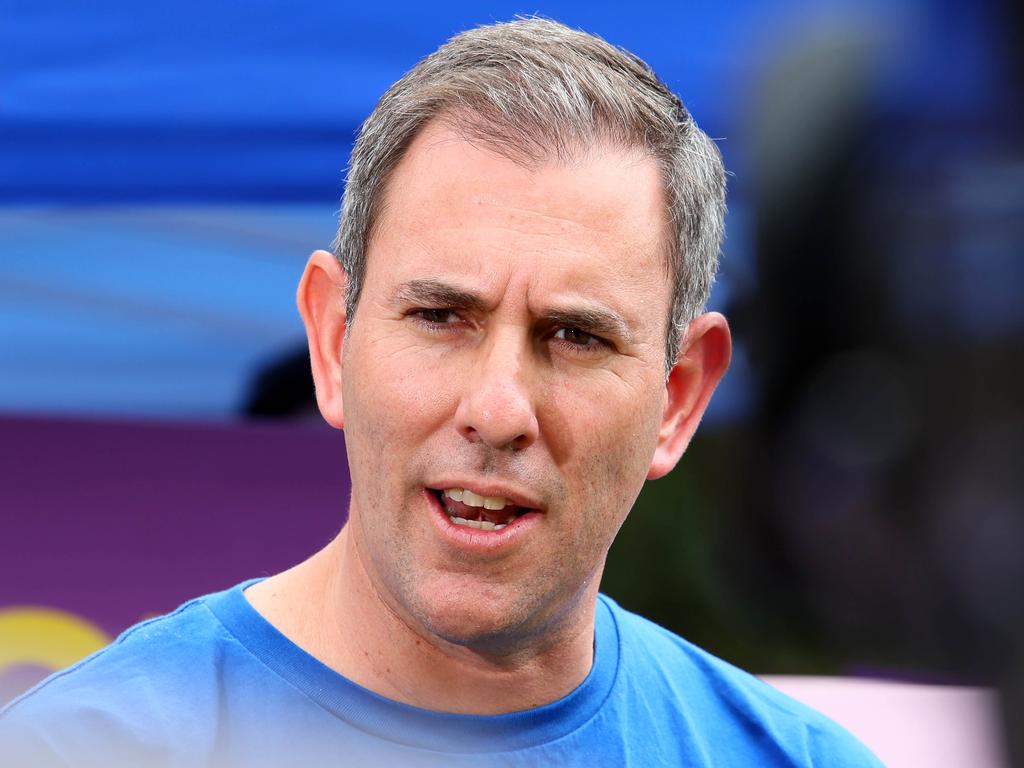Wounded Labor won’t risk heavy reforms
The government’s one substantial effort at a first-term legacy was thwarted by 60 per cent of voters. So what happens now?
When Anthony Albanese appointed an assistant minister for the republic as part of his first ministry, many thought he’d follow up the voice referendum with another tilt at breaking formal ties with Britain, perhaps as part of a second-term agenda.
Not any more. There is zero chance the government will go down that path after what happened a fortnight ago.
On the progressive policy front, the Prime Minister learnt the hard way that Australians are more conservative than he might have expected, not willing to change the Constitution simply on a vibe. Honeymoon popularity is no substitute for detail when selling constitutional change.
With Labor’s progressive agenda in tatters, is anything meaningful likely to happen on the economic front in the coming 18 months or as part of a re-election platform? Probably not.
New governments have a limited window to embark on serious reforms but it is unlikely this government will take any more risks. The substantial amount of time and capital expended on the voice means Labor is likely to scale down rather than expand its policy ambitions. Industrial relations is one area in which Labor has made significant changes but most of them have drawn criticism, not praise, namely because of the difficult economic climate with which many businesses already are having to contend.
Albanese’s interest matching the economic reforming legacy of the Hawke or Howard governments with the sorts of changes the modern economy needs is minimal. No promised tax summit, like Bob Hawke held in the 1980s, means piecemeal changes are as good as it’s going to get. Reviewing how the GST operates also continues to be ruled out. Labor recognises the gig economy lacks worker protections but it seems unwilling or unable to balance addressing such needs with the conditions doing business requires, especially at a time of rising costs.
Treasurer Jim Chalmers, while polished, isn’t an economic pointy head any more than Albanese is. Hawke was compelled to use his charisma to sell micro-economic reforms by his treasurer, Paul Keating. Chalmers doesn’t play that role in his relationship with Albanese. The three Labor MPs with PhDs in economics who might have been able to spark interest in the meaty side of economic reform are all shut out of cabinet. I also hear initial plans to run a consensus-style cabinet may have waned.
To be sure, enacting reforms of any kind isn’t easy in today’s social media age. Who even watches the nightly news any more? TV is no longer the opiate of the masses. And the modern media is even less conducive to economic reforms than was the case in the past. It has fragmented with “team red-team blue” attitudes abounding, polemic comment on both the left and the right. Historians and political scientists wonder if the displays of leadership in past decades could be as successfully deployed today.
But political leaders need to share the blame for where we have landed. The degree of difficulty in taking people on a reforming journey is on the rise as the calibre of the political class declines. Politicians are prone to find excuses for their failings rather than learn from them. Not that the modern media is very good at giving anyone a second chance.
Without serious policy debates defining election campaigns, all we are left with is the politics. Despite the bloody nose Labor received during the voice referendum campaign, the odds of the party winning the next election remain strongly weighted in its favour.
No first-term government has lost a re-election attempt since James Scullin’s 1931 Labor administration. That was during the Depression and it followed a split in the Labor Party. Also, Albanese will square off against a Coalition yet to reflect seriously on why it lost last year’s election. The task of winning teal seats may be even harder for the Liberals at the next election. And anti-voice sentiments in marginal Labor electorates won’t necessarily translate into anti-government sentiments come the election.
But there are reasons for partisans on the right to believe they have a chance at the next election, rewriting the historical precedent.
Labor’s margin is tight, more so than recent first-term governments seeking re-election. The state of the economy isn’t going to endear the government to too many Australians either. It doesn’t matter whether the hardships that rising inflation and interest rates are causing people is the government’s fault or not. Labor is the incumbent and you can bet the opposition will tailor an advertising campaign around growing hardships in the economy since the ALP has been in charge. If Labor wants to whinge about that it should be directed to its own recent scare campaigns. Misinformation in political ads is a case of Tweedledum and Tweedledee.
The Treasurer will be happy to crow about delivering surplus budgets come the next election, but that’s the art of politics, not policy.
Politically, it will be interesting to see if surplus pride wins votes the way it once did, as against the hardships of increased cost of living. Not that it’s a structural surplus. Pipeline costs attached to programs such as the National Disability Insurance Scheme and aged care risk putting future budgets on an unsustainable trajectory. Chalmers will leave difficult reforms to someone else, but so will his political opponents. There are no signs yet that Liberals are any more engaged in the economic reforming debate than Labor is.
Peter van Onselen is a professor of politics and public policy at the University of Western Australia and Griffith University.








In the wake of its failed voice referendum campaign the Labor government is halfway into its first term with not much to show for it. And there isn’t a great deal left on its legislative agenda to turn that around. The government’s one substantial effort at a first-term legacy was thwarted by 60 per cent of voters. So what happens now?